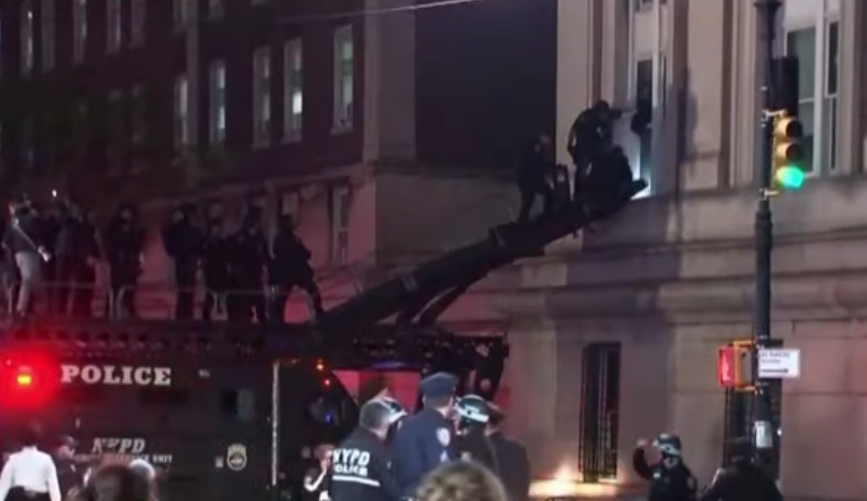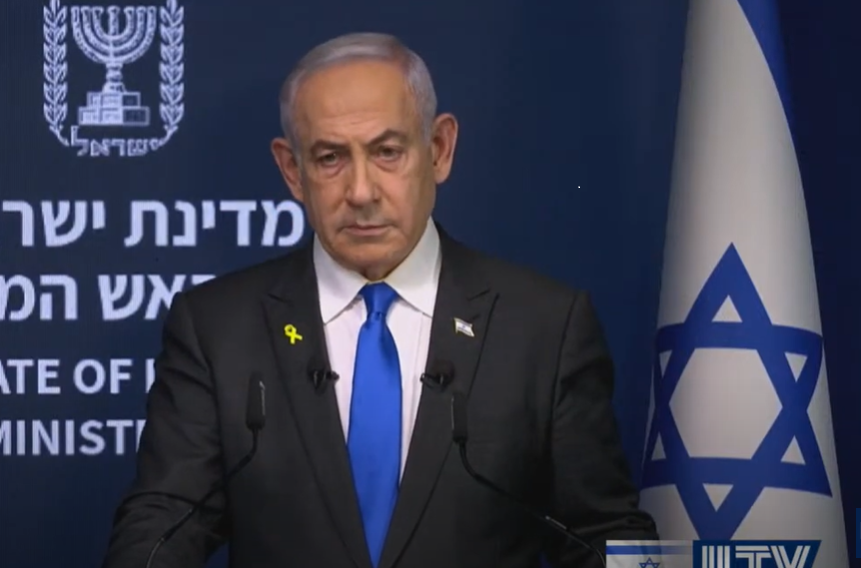ARTICLE AD BOX
Terrorists start negotiations with maximalist demands to probe for weakness and then switch between false promises and threats.
By Daniel Greenfield, Frontpage Magazine
The first rule of negotiating with Islamic terrorists is don’t. The second rule is if you do it, do it with heavy artillery.
Islamic terrorists don’t negotiate. They make demands in hopes of securing concessions without actually giving up anything.
Only the most dedicated historian could find an example of a negotiation process during which the Islamic terrorists made an actual concession, followed through on it and did not later take it back or turn right around and go back to terrorism.
The most prominent counterexamples are the three decades of negotiations between Israel and Islamic terrorist groups which initially won a round of Nobel Prizes and then degenerated into an endless war during which the terrorists took back every concession they ever made, did not follow through on any of them and used Israeli concessions to become a much worse threat.
Negotiating with the Taliban, Hezbollah, and Iran all had the same end result.
Offering to negotiate with Islamic terrorists is a statement of weakness. Jihadists only offer to negotiate out of fear, weakness or to entrap us and they assume we do the same thing.
Nothing would ever convince them that we genuinely want to live in peace with them or that we prefer alternatives to violence. So any time we offer to negotiate, they see it as a weakness or a trick.
If our diplomats ever understood this cultural reality, they would stop being baffled when the negotiations fall apart. And after generations of the same thing, they refuse to learn.
Terrorists start negotiations with maximalist demands to probe for weakness and then switch between false promises and threats.
If any of our diplomats had bought a rug at a good price in the Middle East or a used car at a good price in Chicago, they would respond by walking out.
Instead, they try to find a way to meet their demands. And then the terrorists have them.
The terrorists become the ones to walk out. They throw Bobby Fischer style tantrums over every minor detail. They invent a constant stream of new grievances to be outraged by.
What are typical tactics for small children, sociopaths and Egyptian merchants utterly baffle our best and brightest who can’t figure out how to cope with opponents who don’t play by UN rules.
Now the terrorists start extracting concessions in exchange for taking part in the negotiations. The process becomes a substitute for the outcome.
Peace, an end to violence and the survival of the hostages hinge not on the defeat of the terrorists, but our ability to win them over.
Instead of negotiating the terms of a peace agreement, the negotiations themselves become the subject of negotiations and civilized nations begin bribing the terrorists to stay and talk.
Iran got billions in sanctions relief and the PLO got to spring terrorists from prison. The Biden administration pushed Israel to give Hamas a ceasefire as a prelude to negotiating the release of hostages.
The Israeli government wisely refused to fall for the same trick yet again. And then the negotiations blew up anyway because the terrorists had killed their ‘hostage’.
Islamic terrorists, from Iran to the PLO, from Hamas to Qatar, take the negotiating process itself hostage and warn that they will blow it up unless their demands are met.
Hopeful peace negotiators who allow the terrorists to hold the process hostage become their useful idiots. From the Oslo accords to the Iran deal to the Hamas hostage negotiations, it ends the same way.
The only way to negotiate with terrorists is through strength. Not just a position of physical strength, because terrorists know how to turn a strength into a weakness, but through strength in negotiations.
In Islam, posture is reality and reality is malleable. If you are going to negotiate with terrorists, it’s more important to have a strong posture than the world’s strongest military.
A mighty war machine is an asset, but posture is a willingness to actually use it. That’s why the Carter, Clinton and Biden administrations became international laughingstocks. It’s why the Bush administration, after initially terrifying the Muslim world, came to be seen as a foolish foe.
Western liberals believe that peace will be achieved when all the wars end, but peace in the Muslim world is not a permanent state but a temporary truce in an endless war. Liberals tell us that the problem is a lack of understanding, but the lack of understanding is coming from them.
Liberals are obsessed with understanding the other side, but rather than understanding it, they adopt its grievances as their own, label them as anti-colonialism or some other leftist buzzword, and then take on the job of scourging their own country over the enemy’s grievances.
After generations of this indoctrination, some at academic institutions funded by Muslim monarchs, most of our diplomats have internalized enemy propaganda as factual history and moral reality.
This makes the average State Department girl or Foreign Service lad as able to negotiate with Islamic terrorists as Vidkun Quisling was at negotiating Norway’s independence with the Nazis.
Obama told the nuke deal negotiators that Iran had good reason to fear us because of our support for the Shah and that it was their job to relieve the fears of the ayatollahs.
Such kindly understanding permeates our diplomats who spend a lot of time ‘understanding’ the enemy’s position through the rants of western radicals like Noam Chomsky and John Mearsheimer.
The State Department doesn’t understand our national security. It doesn’t understand the fears of non-Muslims and Muslim governments worried about Islamic terrorists.
But it’s entirely up to date on whatever orientalist nonsense Marxists use to prop up the third world terrorists they hope will bring western civilization crashing down after the Bolsheviks proved unfit for the job.
But booting every Georgetown grad who has read Chomsky doesn’t fix the problems of applying a process meant for civilized countries trying to reach an amicable solution to terrorists who see negotiations as a means of gaining an advantage before their next attack.
The international community, flawed as it is, maintains a level of trust that makes agreements possible.
There is no trust to be had within the Islamic ummah where all agreements are temporary, everything is subject to revision based on force and trickery, and all oaths are fatally false.
Muslim factions cannot trust each other beyond the mutual interests of the moment. Even when bound by kinship and a common religion, they turn on each other in the blink of an eye.
We cannot even count on that much. Without family ties and religious bonds, there is no moral or personal obligation we can expect them to have toward us. Not just their inclinations, but honor and religion demand that they lie to us, cheat us and harm us whenever they can.
That’s why the first rule of negotiating with Islamic terrorists is don’t. It achieves nothing, The only point of such negotiations is to state firmly and clearly what our intentions are.
That is why they are also best conducted with heavy artillery. Terrorists will not end their attacks in response to concessions or negotiations. They will temporarily end them in response to successful attacks or permanently in response to their total destruction. That is how you negotiate with terrorists.
The gentle art of negotiating with terrorists demands that we know who they are and who we are.
As Sun Tzu observed, “If you know the enemy and know yourself, you need not fear the result of a hundred battles. If you know yourself but not the enemy, for every victory gained you will also suffer a defeat. If you know neither the enemy nor yourself, you will succumb in every battle.”
We have been losing the war on terror because we do not know the enemy. But worse still, we have forgotten who we are. And unless we remember, we will lose.

 2 months ago
87
2 months ago
87









 English (US) ·
English (US) ·